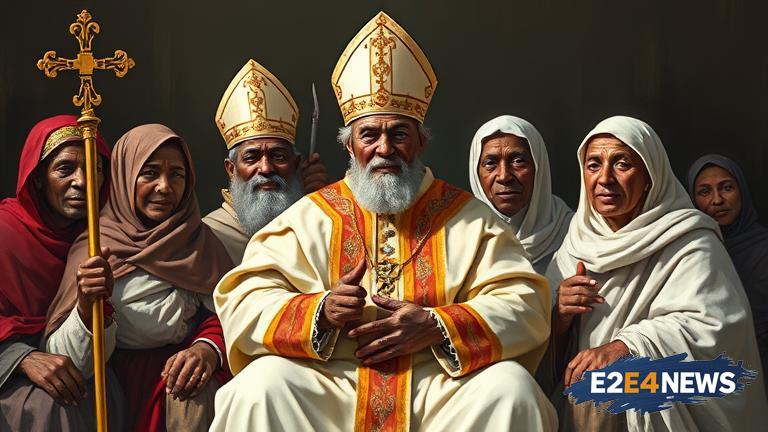In a recent statement, Pope Leo XIV has come out in strong support of the Chagos refugees group, who have been fighting for their rights and dignity for decades. The Pope’s statement has been welcomed by the Chagos community, who have been facing numerous challenges in their struggle for justice. The Chagos Archipelago, located in the Indian Ocean, was forcibly depopulated by the British government in the 1970s to make way for a US military base. The native islanders were relocated to other countries, including the UK, Mauritius, and Seychelles, where they have been struggling to rebuild their lives. The Pope’s support for the Chagos refugees group is a significant development, as it highlights the plight of this marginalized community and brings attention to their cause. The Chagos refugees have been seeking recognition and compensation for their forced displacement, as well as the right to return to their ancestral homeland. The British government has been criticized for its handling of the situation, with many accusing it of ignoring the rights and dignity of the Chagos people. The Pope’s statement has been seen as a major boost to the Chagos community, who have been fighting for their rights for over 50 years. The Chagos refugees group has been working tirelessly to raise awareness about their situation and to seek justice for their community. The Pope’s support is a significant step forward in their struggle, and it is hoped that it will lead to greater recognition and action from the international community. The Chagos Archipelago is a British Overseas Territory, and the UK government has been responsible for its administration since the 1960s. However, the Chagos people have been seeking independence and self-determination, and the Pope’s statement has been seen as a major endorsement of their cause. The Chagos refugees group has been working with various organizations and governments to seek justice and recognition, and the Pope’s support is a significant addition to their efforts. The Pope’s statement has also highlighted the importance of protecting the human rights and dignity of marginalized communities around the world. The Chagos refugees group has been facing numerous challenges, including poverty, unemployment, and lack of access to education and healthcare. The Pope’s support is a major boost to their efforts to overcome these challenges and to rebuild their lives. The international community has been criticized for its slow response to the Chagos crisis, and the Pope’s statement has been seen as a call to action for governments and organizations around the world. The Chagos refugees group has been seeking support from governments, organizations, and individuals around the world, and the Pope’s statement is a significant addition to their efforts. The Pope’s support for the Chagos refugees group is a testament to the power of solidarity and compassion, and it is hoped that it will inspire others to take action on behalf of this marginalized community. The Chagos Archipelago is a unique and fragile ecosystem, and the Chagos people have been seeking to protect their environment and preserve their cultural heritage. The Pope’s statement has been seen as a major endorsement of their efforts to protect the environment and promote sustainable development. The Chagos refugees group has been working to promote awareness and understanding of their situation, and the Pope’s statement is a significant step forward in their efforts. The Pope’s support for the Chagos refugees group is a reminder that the struggle for justice and human rights is ongoing, and that it requires the support and solidarity of people around the world. The Chagos community has been seeking justice and recognition for over 50 years, and the Pope’s statement is a major boost to their efforts. The international community has a responsibility to protect the human rights and dignity of marginalized communities around the world, and the Pope’s statement is a call to action for governments and organizations to take action on behalf of the Chagos refugees group.
